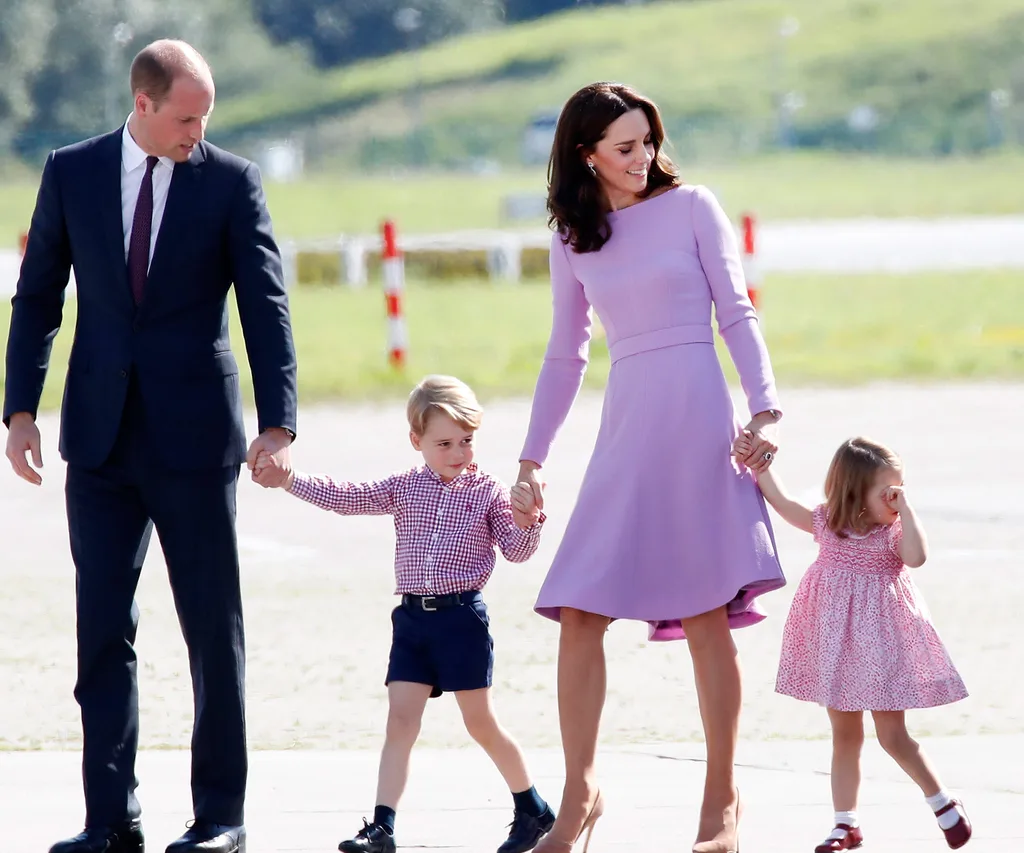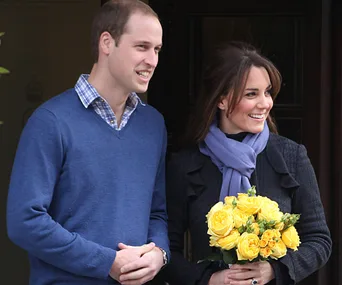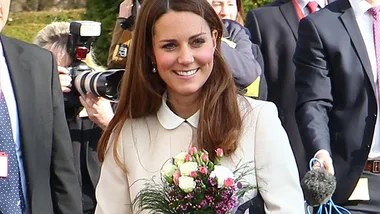The internet almost imploded when Woman’s Day confirmed what had been speculated about for at least two months: that Duchess Catherine and Prince William are expecting their third baby, who is due to be born in March, 2018.
However, while this joyous revelation has sent us into a royal tizzy of excitement (!!!), the one thing clouding Kensington Palace‘s official announcement is that soon-to-be mum-of-three Duchess Catherine is, yet again, suffering from hyperemesis gravidarum: an extreme form of morning sickness that is usually treated with hospitalisation.
But what is hyperemesis gravidarum? This is everything you need to know about the condition that, along with Duchess Catherine, one in 1,000 pregnant women suffer from in Australia alone.
What is hyperemesis?
Hyperemesis gravidarum (HG) is an extreme version of pregnancy nausea or sickness. It can include severe vomiting, usually in the first 20 weeks or so, where you can keep little or no food down.
The continuous nausea and vomiting indicative of HG can result in rapid and significant weightloss (more than 5 percent of pre-pregnancy weight), dehydration, electrolyte disturbances (imbalances in the vital salts that affect all bodily functions), ketosis and acetonuria (presence of ketones in the blood stream caused by lack of glucose in the blood).
These conditions often require hospitalisation to replenish liquids and treat malnutrition, and can lead to emotional exhaustion that leaves many women unable to care for themselves or their families.
What causes it?
To be honest we don’t really know what causes HG, although there are lots of theories – including sensitivity to the pregnancy hormone HCG, or possibly thyroid problems.
In a multiple pregnancy, more hormones are produced, which can lead to severe sickness, especially if you are already sensitive to them.

Four is about to come five in this sweet Royal family. But, unfortunately, like her last two pregnancies, Duchess Catherine is suffering from severe morning sickness.
Is there any treatment?
Initially your midwife or GP will offer the usual advice for pregnancy sickness such as eating little and often, eating dry biscuits or toast when feeling sick, avoiding smells and food which makes you nauseous, wearing acupressure wristbands and resting as much as possible, as tiredness can often make sickness worse.
What if these treatments don’t work?
If none of the above stops you from being sick you may become dehydrated, with a loss of skin tone, constant thirst, and concentrated urine – which is usually when admission to hospital is necessary.
The treatment is to replace lost fluids with a drip containing sugar, water and minerals. You may also be given specific vitamins to take and be advised to rest as much as possible.
Are there any drugs to take for it?
The anti-emetic drugs used for pregnant women today are safe for you and your unborn baby. They’re administered in hospital to break the cycle of trying to eat and drink then vomiting immediately afterwards.
Will it harm my baby?
Most studies show that being constantly sick won’t harm the baby, except in very extreme cases. Studies have shown that severe cases of HG can lead to pre-term babies.
For more information on HG and the risks involved visit the Hyperemesis Education & Research HER Foundation at www.helpher.org.
Will it happen in subsequent pregnancies?
It can happen again, and is often more severe in subsequent pregnancies.
If you, or someone you know, would like to learn more about hyperemesis gravidarum, book an appointment with your GP or obstetrician now.
Obsessed with the royals? Join our Facebook group for the latest updates on Princess Diana, Prince Harry, Kate Middleton, Prince William, and all things royal!

